Sustainability Plasticswaste CO2 29-05-2021 - Arhive
Sustainability Plasticswaste CO2
-Science Should Be the Bottom Line for the Plastics Industry
When science is secondary to attracting investors, grabbing headlines, and promoting hype, companies can get into trouble. That has been happening to many new companies seeking to replace traditional plastics.
Plastics are always, first and foremost, a scientific endeavor and should reflect the principles of science as the bottom line. If the principles of science are sound, provable, and repeatable — as all scientific developments should be — then profits, the other bottom line, will follow. That holds true for new advanced technologies that include various recycling methods beyond mechanical recycling, as well as the development of new types of plastics, specifically bio-based plastics made from plants, biodegradable polymers, and polymers made from enzymes, sugars and various plant oils.
Companies get into trouble when they allow the science of what is possible overshadow what is actually achievable and scalable from a business standpoint and focus instead on attracting investors. That has been happening to many new companies seeking to replace traditional plastics and, in the process, harvesting headlines they likely wish they hadn’t.

-CarbonLite to sell recycling facilities to Sterling, Indorama, DAK
CarbonLite has called itself the world’s largest recycler of PET bottles, filed for Chapter 11 protection in March, blaming the pandemic and economic challenges in recycling markets. Sustainability Plasticswaste CO2
CarbonLite Holdings LLC is selling all three of its PET recycling plants in the company’s bankruptcy.
The buyers are private equity firm Sterling Group, Indorama Ventures and DAK Americas LLC. Each company is buying one CarbonLite plant.
The Los Angeles-based company, which has called itself the world’s largest recycler of PET bottles, filed for Chapter 11 protection in March, blaming the pandemic and economic challenges in recycling markets.
The company had hoped to emerge from the financial reorganization, but that ultimately proved too difficult, forcing the plants to be sold off in auctions in federal bankruptcy court in recent days.
CEO Leon Farahnik said each of the buyers has business in plastics recycling and the facilities will remain in operation. The U.S. Bankruptcy Court in Delaware must still formally approve the sales.
Court documents and Farahnik said the facility in Riverside, Calif., will be sold to Houston-based private equity firm Sterling Group LP for $57.5 million.
Riverside was CarbonLite’s first plant, opening in 2012. Sterling has owned a variety of plastics assets, and in 2019, bought Ohio-based PET recycler and strapping maker Polychem Corp.
The company’s Dallas plant is being sold to global resin maker Indorama Ventures Public Co. Ltd., for $63 million, Farahnik said in a May 26 interview.
The Bangkok, Thailand-based virgin PET maker has been investing in recycling operations globally. In 2019 it bought Custom Polymers PET LLC in Athens, Ala.
CarbonLite’s newest plant, in Reading, Pa., is being sold to PET resin maker DAK Americas LLC, which has is part of Alfa SAB de CV of Monterrey, Mexico. The Reading plant started operating in late 2020.
DAK and Alfa have PET recycling plants in Richmond, Ind., and Argentina. It’s paying $96 million for the Pennsylvania facility.
Farahnik said he was glad the plants will remain with companies in the recycling business.
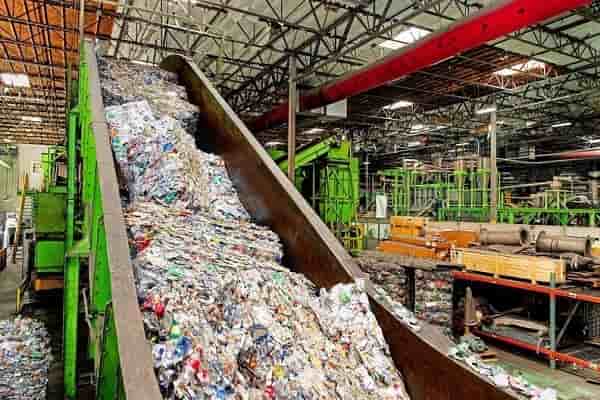
-Baofeng New Material selects LyondellBasell Spheripol technology for its new PP plant
LyondellBasell (LBI), the world’s largest licensor of polyolefin technologies, has announced Inner Mongolia Baofeng New Material Co., Ltd. a fully owned Chinese subsidiary of Ningxia Baofeng, will use the LyondellBasell Spheripol technology for its new mega facility, as per LBI’s press release. Sustainability Plasticswaste CO2
The process technology will be used for four polypropylene (PP) lines, each producing 500 KTA, to be built in Erdos, Inner Mongolia, P.R. China.
Spheripol technology is the leading PP process technology with more than 30 million tons of licensed capacity. The latest fifth generation Spheripol technology includes process improvements that further maximize operational efficiency. The plant will commence operations using Avant ZN catalyst.
New licensees can take advantage of LyondellBasell’s in-house expertise of continuous production improvement, sustainable product development and catalyst knowhow by optionally joining LyondellBasell’s Technical Service program.
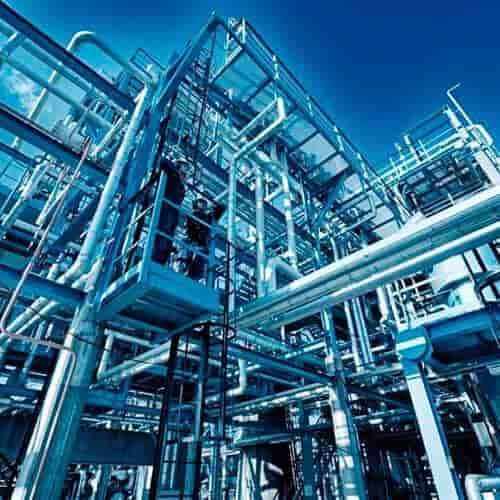
-BoI gives Natureworks tax privileges for PLA project
The Board of Investment (BoI) has granted tax privileges to polylactic acid (PLA) manufacturer Natureworks Asia Pacific Co for its 15-billion-baht investment in a biodegradable polymer production project in line with the state bio-economy scheme.
The facility, designed to have a production capacity of 75,000 tonnes per year, will be located in Nakornsawan Bio Complex.
PLA refers to polymers made from renewable resources such as corn starch, tapioca roots and sugarcane. Sustainability Plasticswaste CO2
“PLA is biodegradable and eco-friendly. This material is also extremely affordable,” said BoI secretary-general Duangjai Asawachintachit.
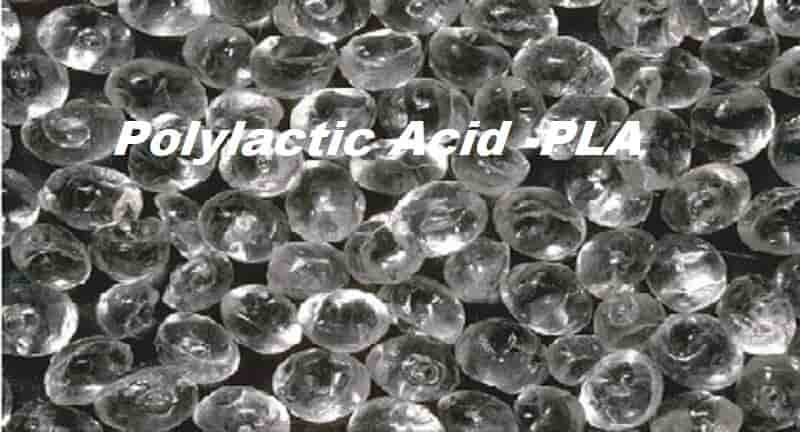
-Producer giants back £1m fund for flexible plastic recycling
Five major consumer goods firms have founded a £1m fund led by Ecosurety to promote household collection of flexible plastic for recycling.
Mars UK, Mondelēz International, Nestlé, PepsiCo and Unilever said the fund would seek to make such recycling more economically viable for recyclers and easier for consumers.
The fund will guarantee a minimum value of £100 per tonne of recycled product to incentivise recyclers to process flexible plastic, which represented 22% of all UK consumer plastic packaging in 2019 but only 6% was recycled..
It will be led by producer compliance scheme Ecosurety, with support from environmental charity Hubbub. Sustainability Plasticswaste CO2
The fund is based on the idea that increased flexible plastic recycling will give the material a stable value.
This will in turn boost supply so becoming more ‘circular’ and attract investment in jobs and infrastructure to make flexible plastic recycling financially sustainable.
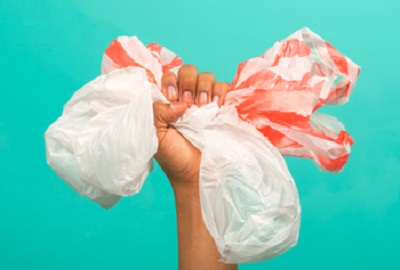
-MEG up after explosion at Asaluyeh, Iran’s MEG supply unaffected
MEG spot prices increased Wednesday tracking the sharp rise in futures, as market sentiment was boosted by concerns of Iran’s supply. MEG futures moved up apparently in line with the hike in methanol futures due to the massive shutdown after the explosion at Asaluyeh industry park, Iran. The explosion occurred along an oxygen transmission line. However, MEG unit operations (Farsa and Morvarid) at the industry park were not affected.
Higher traded prices were around 5,020yuan/mt. Spot-EG09 spread was 25-30yuan/mt. CFR prices were around $645-650/mt in late session.
Iran’s Farsa Chemical’s 400kt/year MEG plant and Morvarid Petrochemical’s MEG plant at Assaluyeh industry park remain operating and June supply will not be affected. Sustainability Plasticswaste CO2
Iran’s Marun Petrochemical is expected to restart its 445kt/year MEG plant at Bandar Iman at the end of May. The plant was shut in end March for maintenance.
Iran’s June MEG supply will remains normal. However, the oxygen supply disruption may affect operations of crackers. Focus could be on the resumption of oxygen transmission line and public facilities. Operating rate of crackers might be reduced if the repairs at facilities are slow. Then Iran’s July MEG supply might be affected.
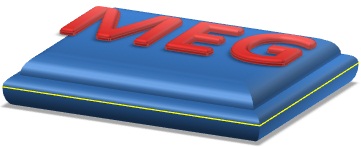
-Branded Glasses Made from 40% Biobased Nylon Compounds
Evonik’s Trogamid myCX eCo sustainable transparent nylon to be used by global eyewear design and manufacturing firm Safilo.
Italian global eyewear design, manufacturing and distribution company Safilo will be the first eyewear manufacturer to introduce Trogamid myCX eCO, a sustainable partially biobased transparent nylon compound optimized specifically for the optical industry by Evonik Industries and introduced in the licensed market for premium lenses for sunglasses. Sustainability Plasticswaste CO2
This high-purity microcrystalline high-performance nylon has the eCO name which stands for “eliminate CO2”. On the one hand, this is achieved by replacing a petrochemical-based raw material with a biomass-based one. In the mass balance, this results in a proportion of 40% biobased raw material in the polymer. Secondly, only renewable energy is used in the production of the granules. This and the resulting halving of the carbon balance compared with the fossil-based product are confirmed by a certification from TÜV Rheinland. The analysis was prepared in accordance with ISO 14040 and ISO 14044 and includes the Cradle to Gate stage.

-Direct-spun PSF lacks luster in May
Direct-spun PSF stepped into narrow range-bound gradually after experiencing the prosperity before and after May Day holiday. In the week before May Day, bolstered by the rise of polyester feedstock and PSF futures, direct-spun PSF price rallied gradually from low where the downstream spinners procured PSF intensively.
After May Day holiday, with the sales improving, the price of direct-spun PSF moved up further. However, downstream buyers became reluctant then and the sales ratio started to decline.
In early to mid-May, PSF futures slumped, and the transactions by the way of basis showed obvious advantages, pressuring the sales of direct-spun PSF plants.
Later on, direct-spun PSF price moved into volatile downtrend within narrow range alongside the ups and downs of polyester feedstock and PSF futures during the period, but the downstream spinners showed modest buying interest with previous stocks at hand. Sustainability Plasticswaste CO2
As a result, the inventory of direct-spun PSF plants started to accumulate. It kept negative in most of the time before May Day holiday, but then rushed up from minus 0.8 day to current 4.3 days.
In fact, the actual product inventory in the warehouses of direct-spun PSF plants has risen to high level at 21.3 days. To deal with that, many plants started to cut production. For example, Yizheng Chemical fiber, Jinlun and Huvis (Sichuan) all arranged maintenance or production cut during May. By the end of May, the operating rate of direct-spun PSF plants has moved down to about 93% from the high of about 97%.
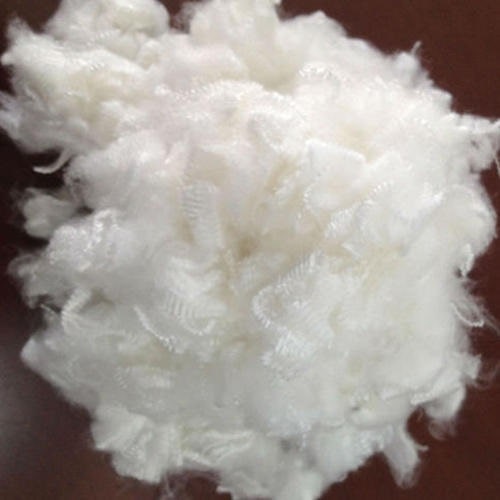
-Sabic and Netstal open thinwall packaging application centre in Switzerland
Chemical firm Sabic has launched its collaboration with German machinery firm KraussMaffei HighPerformance at the partner’s Thin-Wall Packaging Application Center in Näfels, Switzerland. The latter is also the site of KraussMaffei’s Swiss subsidiary and manufacturer of injection moulding machines under the Netstal brand.
The application centre is expected to enable innovative application, material and processing solutions in the thin-wall packaging industry through closer collaboration across the segment’s entire value chain. Sustainability Plasticswaste CO2
“This significant milestone underscores our continuous investment in innovation, collaboration and sustainability to help our customers achieve their goals and drive the industry forward,” said Abdullah Al-Otaibi, General Manager Engineering Thermoplastics Business & Market Solutions, Petrochemicals.
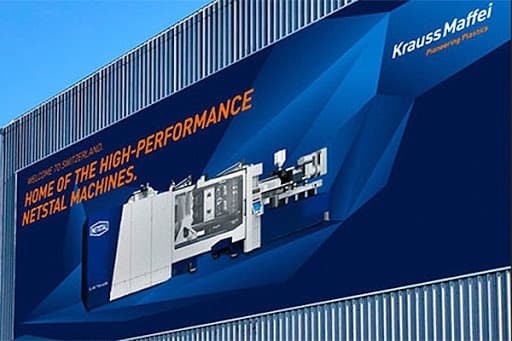
-Metaspectral receives grant funding
Canadian firm says its AI recyclables sorting technology will be introduced by the end of this year.
Vancouver, British Columbia-based Metaspectral says it has been awarded more than $300,000 in grant funding from the CleanBC Plastics Action Fund, which is funded by the British Columbia government and administered by the province’s Alacrity Cleantech program.
Metaspectral says it is developing technology that derives real-time insights from artificial intelligence (AI) using “ultra-high-resolution, visible-to-infrared (hyperspectral) imagery.” Sustainability Plasticswaste CO2
The company says it will use the new funding to go toward the development of computer vision, AI and robotics designed to sort discarded consumer materials, increase efficiency in processing materials and improve the quality of post-consumer recycled plastic. The project is slated for completion by Dec. 31, 2021.
“By using ultra-high-resolution hyperspectral imaging, our AI is able to efficiently distinguish among types of plastics for accurate and easy sorting,” says Francis Doumet, CEO of Metaspectral. “It is impossible for humans to differentiate between different types of clear plastic bottles with the naked eye, so until now, various types of recycled clear plastics were sold together in bulk, decreasing the quality and value of the finished recycled material. Our technology will make it possible to differentiate between otherwise indistinguishable materials in real-time, automatically, meaning that large quantities of plastic can be sorted and recycled more efficiently and accurately.”
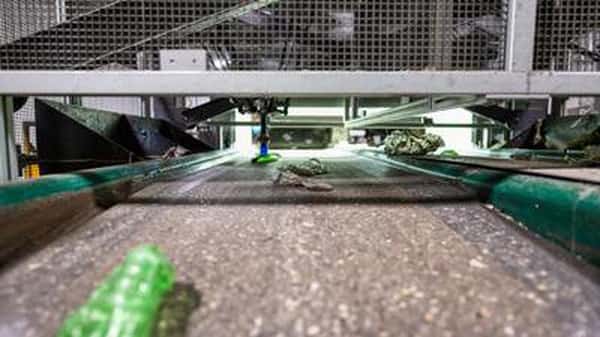
Sustainability Plasticswaste CO2
